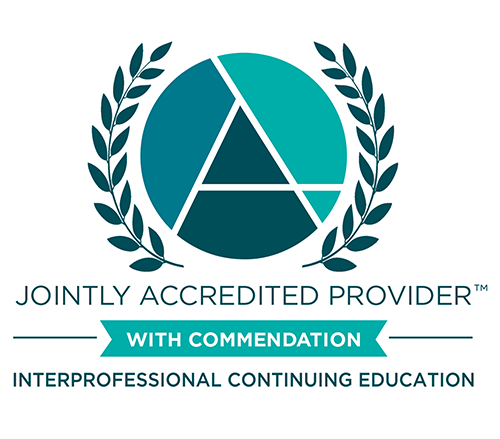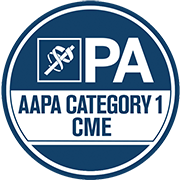Buprenorphine Boot Camp
Please join us for a Buprenorphine Boot Camp: Getting Your Clinic off the Ground virtual workshop this October! This training will serve as a deeper dive into the complexities of medication assisted treatment of opioid use disorders in the primary care setting. Intended for providers who hold a MAT Waiver, the workshop will detail the logistical, legal and prescribing challenges common to MAT, and practical tips to overcome these barriers.
Practice Gaps and Needs
Opioid use disorder can be challenging to treat in the primary care or office setting. The standards, methods and best practices in prescribing Medications for Opioid Use Disorder (MOUD), in particular Buprenorphine, change regularly and healthcare teams require up to date information on these practices. Providers lack a clear understanding in how to offer MOUD, and fail to comprehend how to interpret urine toxicology screens. Additionally, providers expressed interest in more education related to the logistical challenges commonly encountered when treating patients with complex opioid use disorders.
Elements of Competence
This continuing education (CE) activity is designed to change learner competence and focuses on the American Board of Medical Specialties areas of medical knowledge, professionalism, interpersonal and communication skills, systems-based practice, and patient care and procedural skills. This activity also focuses on the interprofessional competencies of values/ethics for interprofessional practice and roles and responsibilities and Institute of Medicine competencies of providing patient-centered care and employment of evidence-based practice.
Intended Audience
This activity is designed to meet the needs of physicians, nurse practitioners, and physician assistants in Family & Community Medicine.
Learning Objectives
By participating in this activity, learners will be able to:
- determine accurate diagnosis and initiate treatment for opioid use disorder.
- interpret urine toxicology screens as it relates to managing opioid use disorder.
- demonstrate skills needed to work with patients who continue to use drugs and alcohol while in treatment for opioid use disorder.
It is the policy of the University of Wisconsin–Madison Interprofessional Continuing Education Partnership, that the faculty, authors, planners, and other persons who may influence content of this CE activity disclose all relevant financial relationships with commercial interests in order to allow CE staff to identify and resolve any potential conflicts of interest. Faculty must also disclose any planned discussion of unlabeled/unapproved uses of drugs or devices during their presentation(s). Detailed disclosures will be made in the workshop materials.
Disclosures will be provided prior to the start of the workshop.
*The ACCME, ACPE, and ANCC defines a commercial interest as any entity producing, marketing, re‐selling, or distributing health care goods or services consumed by, or used on, patients. The ACCME, ACPE, and ANCC does not consider providers of clinical service directly to patients to be commercial interests.
The University of Wisconsin provides equal opportunities in employment and programming, including Title IX requirements. The University of Wisconsin fully complies with the legal requirements of the ADA and the rules and regulations thereof. If any participant in this educational activity is in need of accommodations, please contact [email protected].
Please review full disclosures here.
 | Accreditation Statement In support of improving patient care, the University of Wisconsin–Madison ICEP is jointly accredited by the Accreditation Council for Continuing Medical Education (ACCME), the Accreditation Council for Pharmacy Education (ACPE), and the American Nurses Credentialing Center (ANCC) to provide continuing education for the healthcare team. |
American Medical Association (AMA) The University of Wisconsin–Madison ICEP designates this live online activity for a maximum of 6.0 AMA PRA Category 1 Credit(s)™. Physicians should claim only the credit commensurate with the extent of their participation in the activity. | |
| AAPA Credit Designation Statement The University of Wisconsin–Madison ICEP has been authorized by the American Academy of PAs (AAPA) to award AAPA Category 1 CME credit for activities planned in accordance with AAPA CME Criteria. This activity is designated for 6.0 AAPA Category 1 CME credits. Approval is valid until 6/30/2022. PAs should only claim credit commensurate with the extent of their participation. |
American Nurses Credentialing Center (ANCC) The University of Wisconsin–Madison ICEP designates this live online activity for a maximum of 6.0 ANCC contact hours. The University of Wisconsin-Madison School of Nursing is Iowa Board of Nursing provider 350. | |
Continuing Education Units (CEUs) The University of Wisconsin–Madison ICEP, as a member of the University Professional & Continuing Education Association (UPCEA), authorizes this program for 0.60 CEUs or 6.0 hours. | |
Available Credit
- 6.00 AAPA Category 1 CME
- 6.00 AMA PRA Category 1 Credit™
- 6.00 ANCC Contact Hours
- 6.00 University of Wisconsin–Madison Continuing Education Hours

 Facebook
Facebook X
X LinkedIn
LinkedIn Forward
Forward